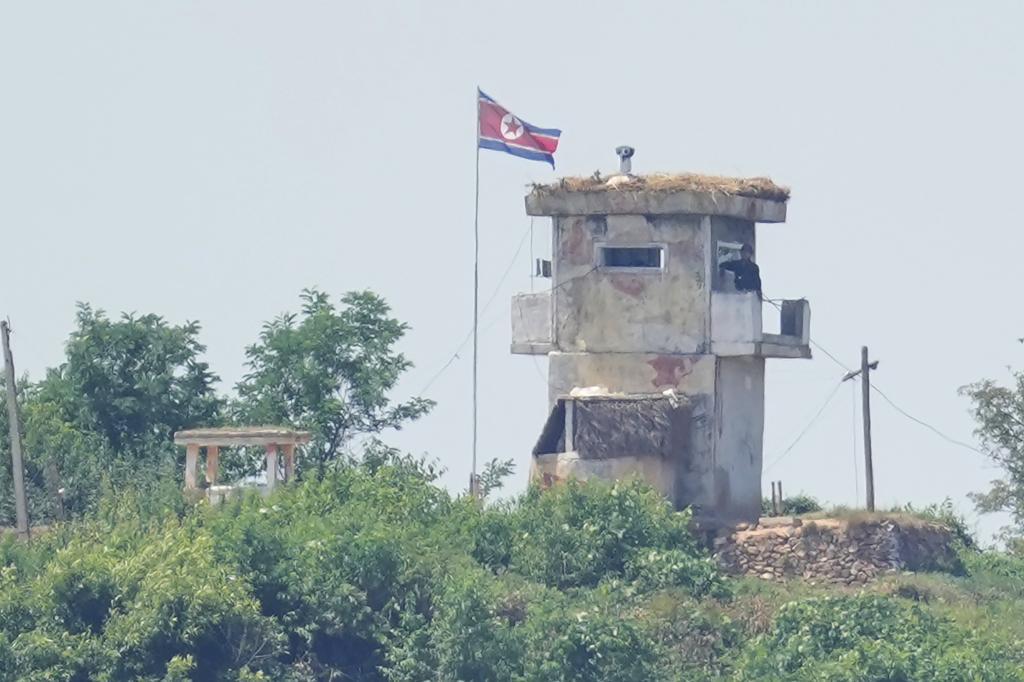At the foot of a white sandy beach and crystal-clear waters on the east coast of North Korea, stands a summer camp with a water park, a sports complex, a zoo, an aquarium, a cinema, a theater, and a recreational area. This place, Songdowon, opened in 1960, is located in the city of Wonsan, a popular vacation destination among North Korean leaders. Supreme leader Kim Jong-un recently inaugurated a huge spa inspired by the luxury resorts of the Costa Blanca near the camp, where North Korean officials traveled in 2017 in search of ideas, visiting Terra Mítica and Marina d'Or.
In the main square of Songdowon, there is a statue of Kim Il-sung, the grandfather of the current Kim, surrounded by children. The camp, in a rare opening move by one of the most isolated countries in the world, opened its doors with the purpose of promoting Pyongyang's relations with other nations, especially with allies from the Korean War, China, and Russia, who spent a couple of decades supporting cultural exchanges, although these were mostly one-way as North Korean children, except for children of political leaders or generals, did not leave their homes.
In 2014, Kim Jong-un personally led the camp's renovation project to accommodate up to 1,200 children. In addition to Russians and Chinese, groups of minors from Vietnam, Tanzania, Mongolia, and Mexico have also spent summers in Wonsan. Some travel agencies based in Beijing are usually responsible for organizing excursions within secretive North Korea. The price is only around 250 euros per child for a two-week stay, as the camp is subsidized by the North Korean government.
After four years with all doors closed due to the pandemic, Pyongyang began in early 2024 to allow some groups of Russian tourists to enter. They also reopened the Songdowon camp for 250 children from the Russian Primorsky region. This happened a few weeks before Russian President Vladimir Putin visited North Korea for the first time in 24 years.
During that visit, Putin and Kim sealed a mutual defense agreement that included a clause requiring both countries to assist each other if one of them is attacked. Three months later, Pyongyang sent over 11,000 North Korean soldiers to Russia to fight on the front lines in the border region of Kursk.
During Putin's visit to the North Korean capital, all media attention focused on the military pact, overshadowing comments made by Putin thanking Kim for hosting the children of Russian soldiers killed in the war in Ukraine at the Songdowon camp.
"I want to thank our Korean friends and personally Comrade Kim Jong-un for organizing the party for the children of the participants who died in the special military operation at the Korean Songdowon camp," Putin said, using the term Moscow uses to refer to its offensive in Ukraine. "We greatly appreciate this genuine act of affection and friendship," he added.
This year, in an interview with a Russian newspaper, Putin's ambassador in Pyongyang, Alexander Matsegora, again mentioned that many "orphans of Russian soldiers killed in Ukraine" had been welcomed at the North Korean camp. Matsegora also revealed that hundreds of Russian soldierswounded in the war were receiving assistance in North Korean hospitals.
"The treatment, care, food... everything related to the stay in North Korea was absolutely free. When we offered our friends to at least partially cover their expenses, they were genuinely offended and asked us not to do it again," emphasized the ambassador.
In early July, at a luxury beachfront hotel in Wonsan, in Kim's resort, Russian Foreign Affairs Minister Sergei Lavrov spent a couple of nights during his visit to reaffirm the strategic alliance between Moscow and Pyongyang: troops and ammunition to Russia in exchange for economic assistance and military technology for the development of the nuclear and ballistic missile program.
Lavrov's visit to North Korea followed a trip in June by Russia's top security official, Sergei Shoigu, who met with Kim before announcing that Pyongyang would send thousands of military construction workers and deminers to the Russian Kursk region to help rebuild the area devastated by war. According to a recent intelligence assessment from South Korea, the North is also preparing to triple the number of soldiers fighting for Moscow, with an additional 25,000 to 30,000 troops expected to arrive in Russia in the coming months.
